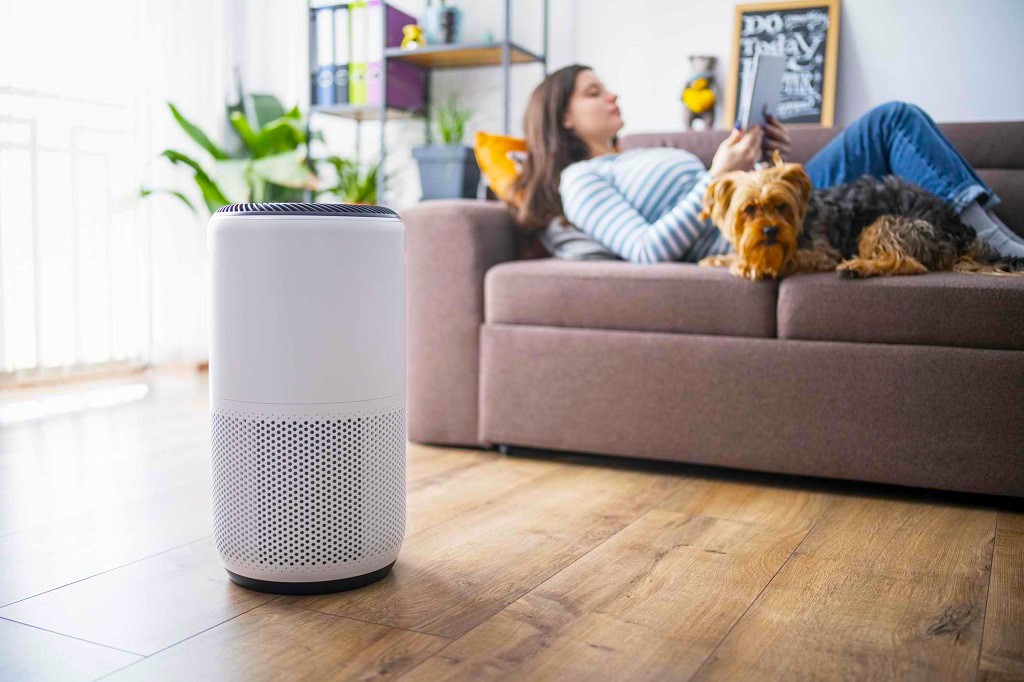
In the diverse ecosystem of our home and work environments, maintaining clean indoor air is fundamental to ensuring the health and comfort of their occupants. Introducing high-efficiency air filtration systems has been a major game-changer in mitigating the adverse effects of airborne contaminants. These contaminants are not just outdoor pollution that has seeped in; they also comprise a range of indoor pollutants, including dust, mold spores, pollen, and chemical vapors from household products. The role of air filtration is to capture these harmful particles and prevent them from circulating through our living spaces, thereby safeguarding our respiratory health.
Critical Components of an Effective Air Filtration System
An air filtration system’s efficiency relies on various factors, chiefly its air filter, which is engineered to capture pollutants while permitting clean air passage. Advanced filters, such as HEPA, utilize dense fiber mats to trap particles as minute as 0.3 microns, extending beyond visible dust concerns. Yet, the system’s effectiveness hinges on factors like proper fit within the housing, secure seals to prevent leakage, and a consistent maintenance schedule for routine filter replacement or cleaning. Regular inspection and upkeep by professionals in hydraulic mobile hose repair Charlotte, NC, are essential in maintaining the air filtration system’s optimal functioning. Neglecting these maintenance tasks can lead to decreased filtration performance and potential system malfunctions, compromising indoor air quality and posing health risks to occupants. Therefore, investing in professional servicing ensures a prolonged lifespan and reliable operation of the air filtration system, safeguarding both health and equipment integrity.
Assessing Your Air Filtration Needs
Finding the appropriate air filtration system for a space can be daunting without understanding specific requirements. It’s essential to consider various parameters, such as room size, occupancy, and air quality. For instance, an area with high foot traffic or one prone to accumulating particulates like pet dander will have different needs than a less occupied or cleaner space. Furthermore, external factors such as the local climate and environmental pollution levels also influence the type and intensity of the filtration required. A personalized assessment of these elements is the first step in identifying the filtration system that will be most effective in a given environment.
Exploring the Health Benefits of High-Quality Air Filtration
The correlation between air quality and health is undeniable. Exposure to polluted indoor air has been linked to many respiratory ailments, from asthma to more acute respiratory infections. High-quality air filtration systems can considerably diminish the presence of airborne allergens and irritants, leading to a marked improvement in lung health and overall well-being. For asthmatics and individuals with allergies, these systems are not just beneficial; they can be life-changing. Detailed discussions and research on improved air quality benefits can be found in notable health organizations. One such authoritative source is the American Lung Association, which offers insights into how air filters can improve lung health.
Energy Efficiency and Air Filtration Systems
While high-efficiency air filtration systems excel at cleaning the air, modern designs also focus on their energy consumption. The goal is to achieve maximum air purification with minimal energy expenditure. This is crucial not only for reducing operating costs but also for contributing to environmental sustainability. Innovations such as variable speed motors and intelligent system controls that adjust filtration rates based on real-time air quality readings are just some advances that enable these systems to conserve energy. Such energy-efficient features ensure that we safeguard the environment and conserve resources while breathing cleaner air.
Making an Informed Decision on Air Filtration Investments
Investing in an air filtration system carries far-reaching health, comfort, and financial implications with commitments. Balancing the upfront costs with the long-term benefits requires careful consideration of various factors. These include system efficacy, maintenance requirements, energy usage, and the health benefits provided. By thoroughly evaluating these elements, one can make an educated choice that aligns with one’s needs and values, ultimately leading to a healthier, more sustainable living and working environment.
